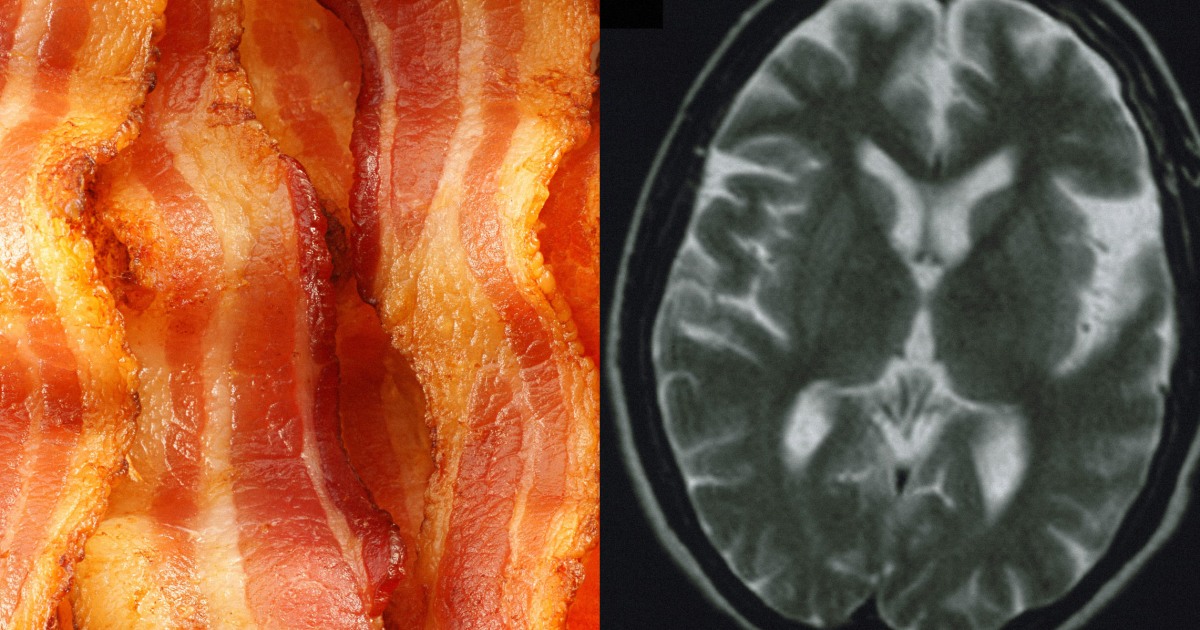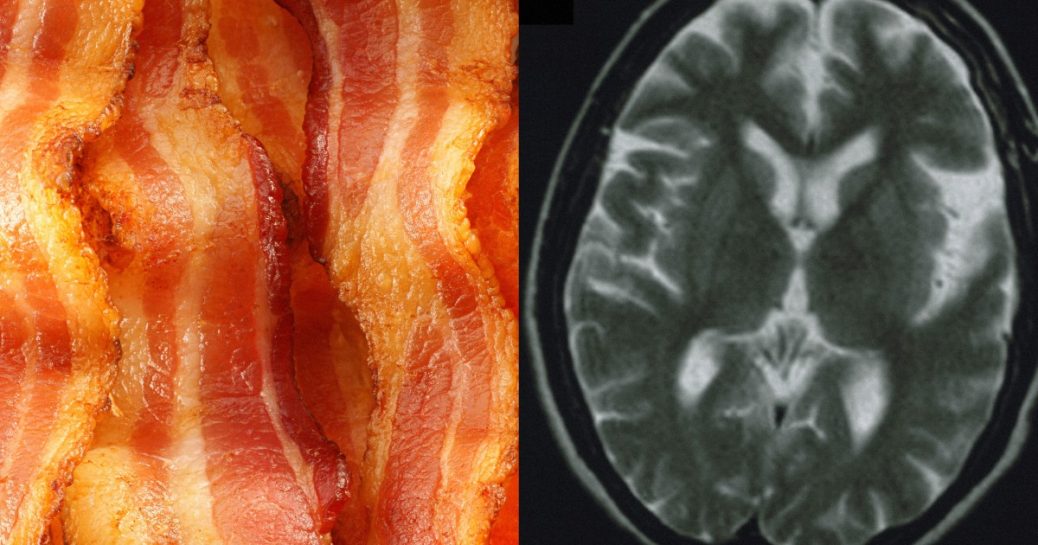
A diet rich in processed red meat is linked to an increased risk of dementia, according to new research presented Wednesday at the Alzheimer’s Association International Conference in Philadelphia.
The findings, which have not yet been peer-reviewed, are the result of a four-decade study of more than 130,000 adults that looked at the link between diet and cognition.
“This is one of the most robust studies I’ve seen that’s associating processed meat consumption and dementia, because they actually followed individuals for decades,” said Dr. Maria Carrillo, the chief science officer of the Alzheimer’s Association.
The researchers found that the people in the study who ate at least two servings per week of processed red meat (such as bacon, bologna or hot dogs) had a 14% increased risk of dementia, compared to those who ate less than three servings per month, after the 43-year follow-up period.
The study also found that every additional daily serving of processed red meat was linked to an additional 1.6 years of cognitive aging, specifically in the area affecting a person’s language ability and executive function, which includes mental skills that control behavior.
The results weren’t all bad news, however. The study found that replacing one serving of processed red meat a day with one serving of nuts or beans was linked to a 20% lower risk of cognitive decline.
“This is really consistent with a larger body of science that tells us that diets that are lower in fat, lower in sugar, higher in vegetables overall, are what’s really better for our brain health,” said Dr. Heather Snyder, the Alzheimer’s Association vice president of medical and scientific relations.
The study adds to a growing body of research showing that processed foods can lead to poorer health across the board.
“Processed red meat has also been shown to raise the risk of cancer, heart disease and diabetes,” the study’s lead author, Yuhan Li, a research assistant in the Channing Division of Network Medicine at Brigham and Women’s Hospital, said in a statement.
“It may affect the brain because it has high levels of harmful substances such as nitrites (preservatives) and sodium.”
Carrillo noted that unprocessed red meats — such as ground beef or steak — weren’t linked to the same cognitive harms in the study.
“When it’s not processed, in moderation, red meat is actually OK,” she said.
Dr. Uma Naidoo, a psychiatrist and director of nutritional and lifestyle psychiatry at Massachusetts General Hospital, said the size and the duration of the study strengthened the results. She noted, however, that the findings were observational and therefore do not show that eating processed red meat definitively causes dementia.
Snyder also acknowledged that while the study, which was conducted in a mostly white and higher socioeconomic group of health care professionals, may not represent the broader U.S. population, it still points in the general direction of reducing processed red meat intake as a way to improve brain health.
What to eat instead of processed red meat
One of Naidoo’s major takeaways from the study was that people should seek out whole, fresh foods as much as possible.
“The less processed, the better,” Naidoo said. “Good servings of vegetables and fruits bring fiber, nutrients, minerals and vitamins to the body and the brain.”
She pointed to research showing that diets with whole, fresh foods are linked to longer lifespans and reduced health problems.
Naidoo also offered suggestions for people who don’t have regular access to whole, fresh foods. Canned fish and beans, as well as frozen vegetables, can be affordable and widely accessible sources of protein and other nutrients for people seeking alternatives to processed red meat. Canned beans can be drained and rinsed to reduce their sodium content, and frozen vegetables can serve as whole foods because they are flash frozen at peak ripeness. Even so, Naidoo recommends looking out for low-sodium options for those who decide to add these foods to their diet.
Dr. Yian Gu, an associate professor of neurological sciences at the Columbia University Medical Center in New York City, said that a healthy diet is only one part of an overall healthy lifestyle to stave off dementia.
“You not only need to eat fresh, healthy food, but you also need a healthy lifestyle — enough sleep, exercise, social contact, and leisure activities. All of these things work together for better health conditions,” Gu said.
Carrillo agreed. “It’s important to remember that these decisions, even if they feel small, have long-term impacts,” she said. “These are things that we have to continuously think about, because we’re living longer, and we want to be as healthy as possible as we live longer,” she said.










Recent Comments